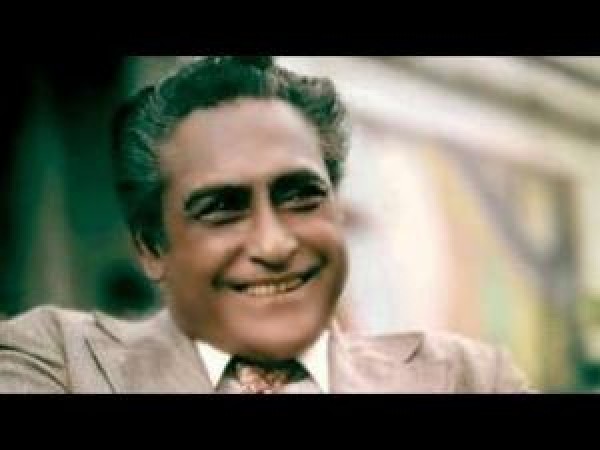
Tales of unusual beginnings that lead to extraordinary endings are common in the annals of cinematic history. The transformational journey of Ashok Kumar, a legend of the Indian film industry, is one such story. Ashok Kumar had a different job before he graced the silver screen; he worked as a lab assistant at Bombay Talkies. This lesser-known period of his life sheds light on the extraordinary journey that catapulted him from a lab to the spotlight, making him a pioneer in Indian cinema.
Ashok Kumar's relationship with the movie industry started with a relatively understated role. He was born Kumudlal Ganguly on October 13, 1911, in Bhagalpur, Bihar. Ashok Kumar spent a lot of time in Bombay Talkies' backstage environment before he earned his rightful place in the spotlight, which was at the time one of the most prestigious studios in the business.
When Ashok Kumar first entered the world of filmmaking, he did so in a film laboratory, the hub of the production process. When Kumar worked as a lab assistant at Bombay Talkies, he was tasked with duties related to film processing, editing, and various technical facets of filmmaking. His understanding of the medium was later shaped by this experience working behind the scenes in the intricate world of filmmaking.
Although Ashok Kumar's duties mainly focused on the technical aspects of filmmaking, destiny had bigger plans for him. He quickly attracted the attention of Devika Rani, a well-known actress and the co-founder of Bombay Talkies, thanks to his inherent charm, natural flair, and insatiable curiosity about acting. Her encouragement to leave the lab and explore the world of acting came from her recognition of his potential.
Franz Osten's 1936 film "Jeevan Naiya," which starred Ashok Kumar in his acting debut, was released. The beginning of a new era in Indian cinema was signaled by his portrayal of a disillusioned young man, which struck a chord with both viewers and critics. The turning point in Kumar's life came when he went from being a lab assistant to a successful actor. This event also paved the way for a long and successful career.
It was more than just a change in roles when Ashok Kumar went from being a lab assistant to an accomplished actor; it was the beginning of a legend. He had a special advantage because of his natural acting talent and technical knowledge of film. He was able to differentiate himself from his contemporaries thanks to this dual perspective, which infused authenticity into his performances.
The life of Ashok Kumar continues to serve as proof that extraordinary achievements can come from unlikely beginnings. His legacy includes his adaptability, dedication, and pioneering spirit in addition to his acting talent. Ashok Kumar left a lasting impression on Indian cinema with his iconic roles in movies like "Kismet" and "Achhut Kanya" as well as his endearing presence in ageless classics.
The story of Ashok Kumar's transformation serves as a reminder that art and science are combined in the world of cinema. His transformation from a lab assistant to a leading figure in cinema is an example of the possibility for personal development and self-discovery. All those who dare to dream beyond their initial roles and set out on a path that redefines their identity find inspiration in it.
As Ashok Kumar's legacy continues to shine brightly, his story serves as a powerful reminder of the value of seizing opportunities and pursuing one's passions with unwavering tenacity. His journey from the lab to the spotlight is still a sign of hope and a proof of the wonder that can happen when destiny and hard work come together.
Manmohan Desai and the Birth of Bollywood Masala